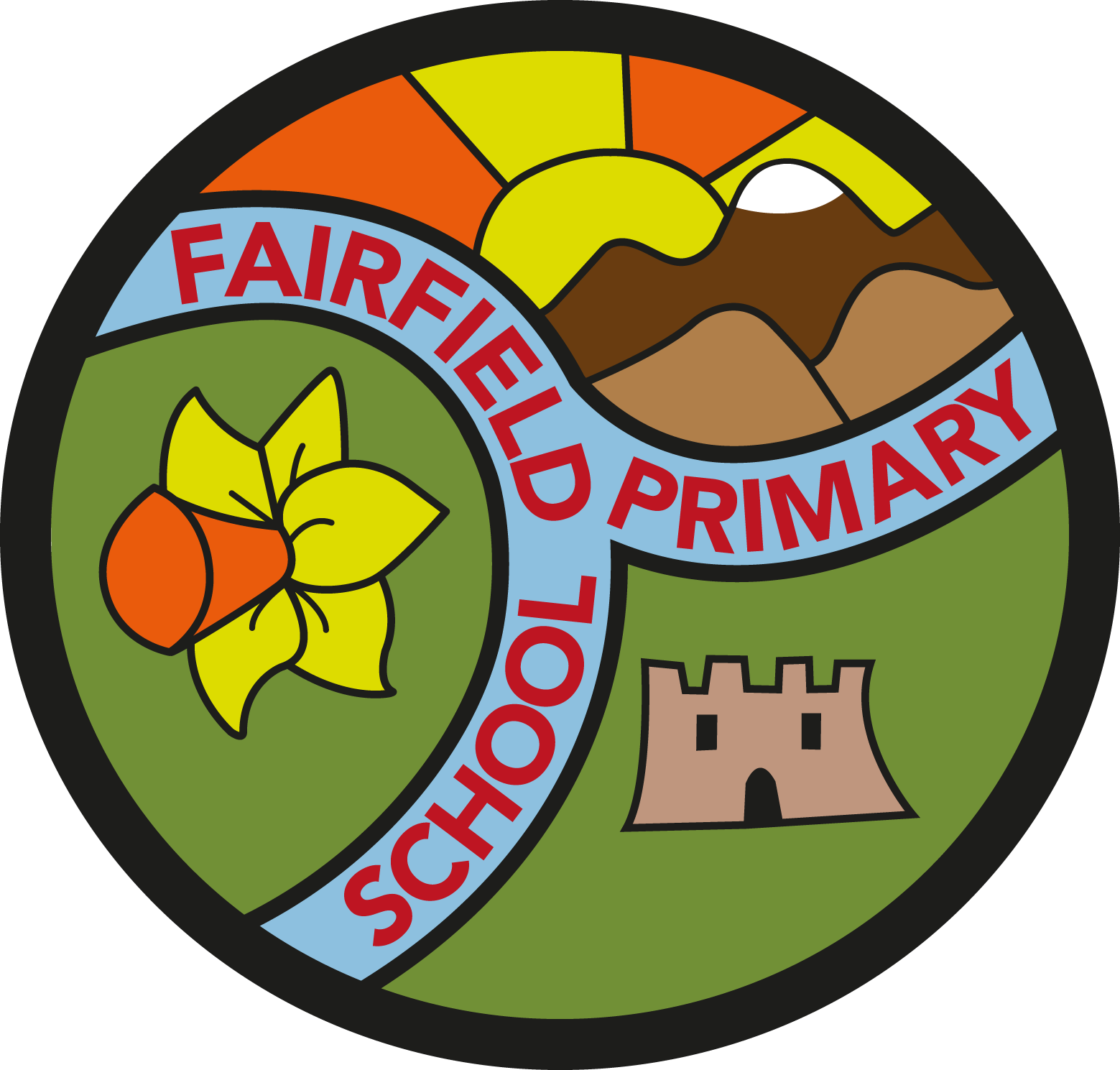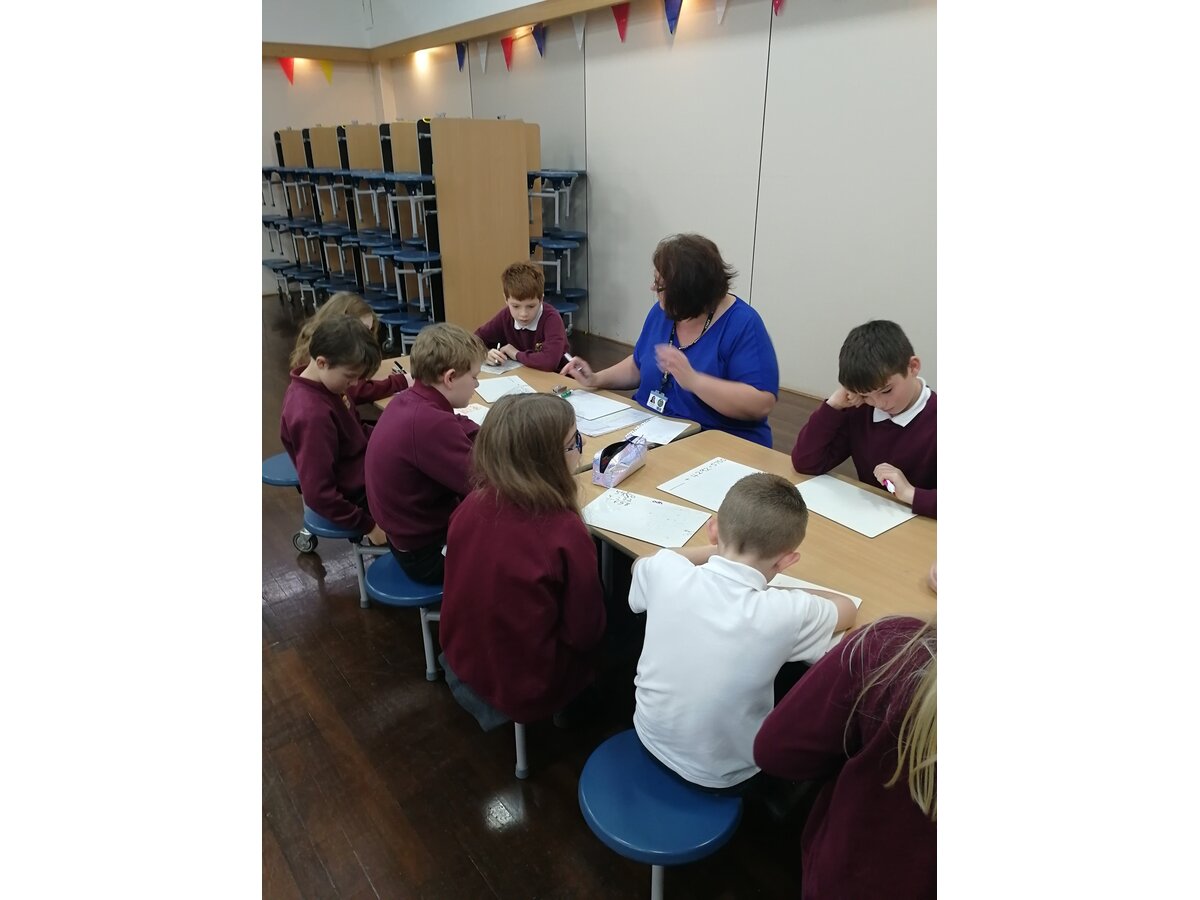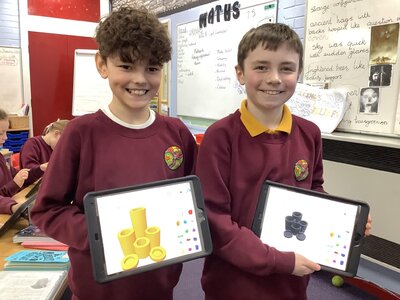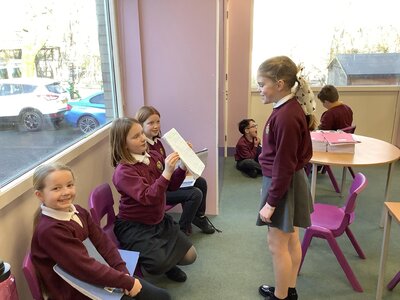Our Philosophy
A significant aspect of our offer at Fairfield Primary School, is our unique approach to support pupils in all aspects of their learning. Our approach is rooted in evidence based research, which, in turn, increases its impact and reach. The EEF acknowledge that extending the school day is a strategy schools may take to aid the intervention process. Therefore, the vast majority of our intervention packages, take place between 8.30am-9.00am or, 3.20pm-4.00pm. In-line with research, in order to be successful, any increases in school time are fully supported by both parents and staff so therefore clear communication is made with parents/guardians (via a letter) outlining what the provision entails and why it would be beneficial for their child. The times and dates remain consistent for convenience and to aid timetabling.
Additionally, in the EEF’s Teaching and Learning Toolkit, evidence indicates that, on average, pupils make two additional months' progress per year from extended school time and in particular through the targeted use of before and after school programmes. There is some evidence that disadvantaged pupils benefit more, making closer to three months additional progress. There are also often wider benefits for low-income students, such as increased attendance at school, improved behaviour and better relationships with peers. Moreover, within the Toolkit, evidence shows that small group tuition is effective and, as a rule of thumb, the smaller the group the better. Therefore, we instil a maximum of a 1:5 ratio for intervention. EEF research acknowledges that intensive tuition in small groups is recognised as a good strategy to support the lower attaining learners or those who are falling behind. The average impact of the small group tuition is four additional months’ progress, over the course of a year. EEF research recognises that small group tuition is most likely to be effective if it is targeted at pupils’ specific needs, which we aim to deliver. Moreover, due to many of our intervention facilitators being specially trained, the EEF recognises that this is likely to increase impact.
All of our intervention groups are fluid and the progress of the children engaging in such activity, is closely monitored through Pupil Progress Meetings.
Reading
Here at Fairfield Primary School, we have devised a very successful approach to Reading Intervention. Our approach is outlined in our 'Wave Models' below.
Reading Intervention
Reading Intervention & Structured Reading and Spelling Programme:
As you will see, a key aspect of our intervention strategy is our Reading Intervention Programme and Structured Reading and Spelling Programme. Mrs. T. Barrientos and Mrs. C. Studholme deliver this intervention five full afternoons per week.
Reading Intervention is a research based, one-to-one intensive and very successful approach to teaching children which helps to accelerate their development of literacy skills. This is a wave 3 intervention.
The one-to-one programme combines a highly structured reading programme, with systematic activities to promote and link phonological awareness (how we process and use sounds) to reading and writing. The programme consists of 40 support sessions of 35 minutes duration, delivered over a 12-week period by a Reading Intervention trained teacher/teaching assistant.
Pupils to be considered for this programme should be significantly delayed in the development of their reading and spelling skills and must be in year 2 and above. There must be evidence that pupils have received previous interventions such as ELS or 1-1 work with a teaching assistant at class level but despite this they have not made progress as expected.
Each programme is unique and specifically planned for an individual child. Teaching is based on detailed assessments of a child at the start of a programme which are then repeated at the end of the programme to measure progress and identify next steps and targets.
A typical intervention session includes:
Re-reading easy books
The re-reading of books which are ‘easy reads’ to reinforce and develop independent use of text reading strategies, develop fluency, develop confidence with books, consolidate letter and word recognition, contribute to ongoing assessment of letter and word recognition and use of text reading strategies and to improve recognition and knowledge of the use of punctuation.
Letter knowledge
Children are taught the letter names and sounds of both upper-case and lower-case letters and how to correctly form them.
Phonology and Sound Linkage activities
Phonological activities focus on identification of syllables, rhyme, ability to hear sounds/phonemes, blending for reading, segmenting for writing and sound manipulation. This is achieved by completing activities from the Sound Linkage Programme book and through the use of magnetic letters when introducing words for reading and writing, so making it a multisensory learning experience.
Writing a story
This section helps to develop confidence with writing, increase the number of known spellings through rapid recall, develop strategies to attempt to write new and increasingly more difficult words, improve layout of work, embed and improve knowledge of punctuation, reinforce correct letter formation and handwriting skills, and to establish a link between reading and writing and spoken to written word.
Reading- introduction and child’s independent attempt with an unseen book
Children are introduced to a new book at the appropriate level, initially talking through the pictures, looking at new sounds within words, new vocabulary, more difficult words and they are taught appropriate reading strategies. This ensures that they have all the necessary ideas, skills and language in order to successfully attempt to read an unknown text. It also reinforces and develops independent use of reading strategies, consolidates letter and word recognition, contributes to ongoing assessment and improves and reinforces the function and use of punctuation, particularly with regard to fluency and expression. An adult modelling reading to a child promotes the development of phrasing and fluency and it also helps to develop and enhance a child’s comprehension skills.
Reading Eggs:
Reading Eggs is primarily used in Reception. Reading Eggs is specifically designed to teach children the core literacy skills needed to be successful at school with a progressive sequence of interactive and motivational lessons. It is an intervention that can easily be utilised at home, so is beneficial for home-learning and reading in household. Some of the benefits of the Reading Eggs programme for reading include:
- One-on-one Learning: Reading Eggs provides children with a one-on-one learning environment, which means that they can learn at a rate that suits their level of ability and progress. Children are also able to repeat lessons in order to overcome any difficulties.
- Focus on core literacy skills: Reading Eggs’ lessons focus on developing the core literacy skills children need for success at school. These include:
- Phonemic awareness – the ability to hear, identify and manipulate the individual sounds in words.
- Phonics – the ability to link sounds to letters, also known as the alphabetic principle.
- Vocabulary – building the bank of words a child can automatically recognise.
- Fluency – reading automatically, accurately, with appropriate tone and accounting for punctuation.
- Comprehension – reading for meaning and making inferences from text.
- Making Learning Fun: Children learn best when they’re having fun. The online lessons and activities in Reading Eggs make learning enjoyable and highly engaging for young children. Children stay keen to learn with the vibrant animations and visuals, colourful characters, catchy music and sing alongs that feature in the lessons.
- Tracking Progress: Reading Eggs provides parents/guardians with a detailed progress dashboard, which details how many lessons their child has completed, their percentage of correct answers, learning milestones they have achieved, rewards they have earned and the estimated reading age of their child. Parents/guardians can also receive regular progress updates via email.
Rapid Phonics:
In Key Stage 1, Rapid Phonics is used to help children who require additional support with early reading. This is a Wave 2 intervention. Rapid Phonics is a unique intervention program. It includes 56 decodable and age-appropriate fiction and non-fiction readers and eBooks as well as helpful teaching guides, which Mrs. J. Hastings uses in order to build confidence and help students read accurately, quickly and with expression. Research indicates that the intervention has clear sequencing of phonemes/graphemes, is Dyslexia-friendly, uses repetition of the target phoneme/grapheme recognition and implements high-frequency sight words. This intervention is delivered twice weekly to pupils in small groups from Years 1 and 2.
Comprehension/Guided Reading Group:
This a Wave 2 intervention, which is delivered in the early mornings, across Key Stage 2. On average, it is a 1:3 ratio. The school has specific texts, both fiction and non-fiction, which the children engage with during the sessions, which are planned specifically for the children’s needs. It is a collaborative approach to enhancing the fundamental skills of reading, enriching vocabulary and developing inference skills. In Key Stage 1, a similar approach is adopted but such activity happens within the school day.
Reciprocal Reading:
Reciprocal Reading is an intervention programme, which we use in Years five and six. It is particularly appropriate to use with children who can decode but find it difficult to understand what they read. As the name suggests, reciprocal is mutual or two way, pupils and leaders of the programme have an equal responsibility to contribute and engage with the meaning of the text they are reading, through in -depth and structured discussion.
Additional Supporting Research:
Early reading is identified as significantly important by Ofsted, who outline, “We’ve made the early reading deep dive mandatory because it’s so important that children learn to read fluently as quickly as possible. Inevitably, fluent readers will learn more, because they can read and gain knowledge for themselves.” Our approach to investing in a reading platform to aid the children will enable them to better succeed in other areas of the curriculum. In accordance to the EEF’s Teaching and Learning Toolkit, the fact the learning will be individualised and provides one-to-one learning, means that it will have a positive effect on learners, with an average of three months progress.
Writing
Writing Workshop Intervention:
The Writing Workshop Intervention mirrors the research carried-out by the EEF, as outlined in their Teaching and Learning Toolkit. This is because it is small group tuition, i.e. a teaching assistant with two to five pupils together in a group. This arrangement will enable the teaching to focus exclusively on a small number of learners, in a separate working area.
Mrs. T. Barrientos delivers the intervention each afternoon, after school, from 3.20pm-4.00pm. Due to the practitioner being specially trained, the EEF recognises that this is likely to increase impact. The intervention runs from Year 2-6, across five consecutive afternoons. The groups change every half-term so lots of children can benefit from this additional support.
Each session is in three parts:
1. Spelling
2. Punctuation and Grammar
3. Application in sentence/basic sentence structure
On the last two sessions, the children will be completing an extended piece of writing, guided by the practitioner.
The groups of pupils are specifically chosen; children are grouped based on the specific areas in which they require support with writing.
IDL English:
IDL was trialed in school last year and proved popular with all staff from Year 1 to 6 as it was “easy to use”, “plugged gaps” and “tracked progress”. Therefore, as a school, we have committed to this
platform to aid SEND intervention and help close the gaps in children’s knowledge and skill of those who are at least one year behind age-related expectation.
Research undertaken by Lancaster University, conducted a large study analysing 96,978 performance records on the IDL programme from 2011 to 2018, found that on average 1 session of IDL improves reading ability by 1.9 days and spelling ability by 1.8 days. Another key finding is that 1 new lesson should be implemented every 6 days to maximise spelling improvements and every 8 days to maximise reading improvements. Therefore, IDL English happens at Fairfield Primary School in small groups, facilitated by a support member of staff, twice per week from 8.30am-9.00am; thus, allowing pupils the hour they need per week to maximise impact.
Each pupil is provided with their own laptop for the session(s).
Maths
Mathseeds:
Mathseeds is used primarily in Reception, Year 1 and Year 2 to help support identified pupils with the core maths and problem-solving skills needed to be successful at school with fun, highly interactive and rewarding lessons.
Mathseeds combines highly structured lessons with fun motivational elements that keep children engaged and keen to learn. This is a resource that is used both in school and at home. At any one time, up to thirty licences are utilised.
IDL Maths:
IDL was trialed in school last year and proved popular with all staff from Year 1 to 6 as it was “easy to use”, “plugged gaps” and “tracked progress”. Therefore, as a school, we have committed to this platform to aid SEND intervention and help close the gaps in children’s knowledge and skill of those who are at least one year behind age-related expectation.
Research undertaken by Lancaster University, conducted a large study analysing 96,978 performance records on the IDL programme from 2011 to 2018, found that children make accelerated progress within Mathematics as it tailors the learning to the gaps in the knowledge from an initial assessment. Another key finding is that 1 new lesson should be implemented every 6 days to maximise improvements. Therefore, IDL Maths happens at Fairfield Primary School in small groups, facilitated by a support member of staff, twice per week from 8.30am-9.00am; thus, allowing pupils the hour they need per week to maximise impact.
Each pupil is provided with their own laptop for the session(s).
Targeted Maths Intervention:
The school day is expanded for identified children for targeted Maths intervention, in Key Stage 2. Each year group operate two sessions of this intervention per week. These sessions run from 8.30am-9.00am and are delivered by our fantastic support staff. The sessions are tailored to each child’s needs, with teachers planning the sessions based on the ‘gaps’ in children’s knowledge and/or mathematical skill. Some pre-teaching of key concepts occurs and sessions are reactive to the needs of the group.
Additional Teacher Focus:
During year group assemblies, teachers work one-to-one/one-to-two, with identified pupils to address misconceptions, which have arisen in that week’s teaching, and/or further support/challenge pupils. Time may be put aside for practice, additional teaching, scaffolding and/or acting on feedback to correct work. In accordance to the EEF, evidence indicates that one-to-one tuition can be effective, delivering approximately five additional months’ progress on average.
Greater Depth Challenge Group:
In Year 6, Mr. J. Gale operates a Greater Depth group, which is aimed at aiding children’s reasoning skills and algebraic ability. Children work in a small group to access challenging mathematical material (aspects of which may be from Key Stage 3) in order to further strengthen mathematical skill and understanding and enhance engagement. These groups usually run from January-May, after-school from 3.20pm-4.00pm.
Speech & Language
As well as engaging with external agencies for more specific, targeted support, we utilise specific resources from Black Sheep Press to further support children with Developmental Language Disorder (DLD) and speech, language & communication needs (SLCN). Such resources are mainly used in our EYFS Unit. Additionally, Miss. V. Bell operates specific Ross Bailey programmes to demonstrate specific social and communication skills to identified pupils in our EYFS cohort.
Pastoral Care
To read about how we support children pastorally, please click on the following link:
Pastoral Care | Fairfield Primary School




